|
In 2021, Shma Koleinu is focused on two areas: Compensation equity and federal funding for ECE. To learn more about the work of the compensation equity team, we invite you to explore the Padlet that documents our journey together.
The American Families Plan talks a lot about this topic. What does it mean? 4 ECE directors across 3 states will tell us what it has meant in their states. This is knowledge we all need as advocates.
You will be surprised by the incredible variation in what universal preschool might mean in different locales. Click the image below for recording, notes, and resources. Greetings from the Block Grant Initiative! Since we last met, an amazing milestone occurred: the passage of the American Rescue Plan Act. This Act was passed in the House on February 27, and then it moved over to the Senate, where it was passed on March 6. On March 10, the House of Representatives voted to approve the changes made by the Senate, and then they sent the bill to the President, who signed it into law on March 11.
As you know, this Act did three things that are relevant to Shma Koleinu: Number one, it brought families stimulus checks and numerous tax credits. Number two, it funded $15 billion for CCDBG, providing child care assistance to children in families with low incomes. And number three, it directed $25 billion for Emergency Stabilization for the childcare industry, benefiting centers. All told, this Act realized and brought to a close a yearlong campaign to bring $50 billion to the childcare sector. We want to pause for a moment: You were part of this. You’ve listened and learned You’ve shared stories. You have become an advocate. Ba-ruch A-tah A-do-noi E-loi-hei-nu Me-lech ha-o-lam she-he-chee-ya-nu v'ki-yi-ma-nu vi-hi-gi-ya-nu liz-man ha-zeh. Blessed are You, L-rd our G‑d, King of the Universe, who has granted us life, sustained us and enabled us to reach this occasion. Take a moment to pat yourself on the back. To reflect on the journey and the shifting paradigm. We invite you to take a moment and share in the chat one piece of learning you have taken from this experience thus far. Also since we last met, we hosted webinars that helped all of us, plus the wider network of Shma Koleinu advocates, get to know and learn from advocates in Washington. This process of building our knowledge is vital. There is much to learn to get literate in government policy and funding for ECE. From the National Council for Jewish Women, we heard about how the America Rescue Plan Act and its provisions for families are having more than a modest impact: they are cutting childhood poverty in half. This is a reminder to early childhood advocates that, in the words of Marianne Williamson, we are powerful beyond measure, and our playing small doesn’t serve the world. That is, when funded properly, early childhood education and investing in children and families IS as powerful as we have always suspected. At this week’s webinar with the National Women’s Law Center, we learned that advocates must be bold in telling the truth about what is needed and that we must not be limited by what is politically possible. Recently, our Initiative has focused on where CCDBG and Stabilization funds go when they get to the state level. Here is what we learned: Every state is different. For our own literacy and effectiveness, Shma Koleinu advocates in every state need to know how federal funds supporting ECE arrive in their home states and where they go next. We jokingly talk about this process as being able to summarize complex ideas with the confidence and conciseness of a report a 4th grader might give in school. We suggest this be a goal for all of us--to understand and be able to articulate how and where money comes into our own states for ECE; how it gets spent; and by whom. This process will take time to investigate and internalize. Be aware that this is an area for growth for each of us and we want to say thank you to the block grant members who have begun doing the work to support us in this deep dive. Here is an example of what you might learn as you embark on this process of learning about your own state: In Connecticut, our state officials are not as transparent about things as we believe they should be. For example, we have an Office of Early Childhood, but it does not make clear exactly what programs it funds. It should not be this hard to figure out how our money is being spent. The majority of CCDBG funds in Connecticut go to Care for Kids, which is our subsidy for low-income families. Only these subsidies don’t fund parents who are in school—it is only for parents with full-time jobs. And the funds only cover 25% of the tuition. And parents have to reapply every month. Money also goes to QRIS, school readiness programs, and technical assistance to family-based child care. We have had a problem in Connecticut with unlicensed home providers--in recent years, children have died in unlicensed home-based care, leading to some really significant funds toward licensing and providing CPR and first aid training for these providers. As for American Rescue funds, a significant amount of them will go directly to centers. This will come out soon as a one-time payment of as much as $600 per child. These funds will also support Care for Kids, the program where low income families can access a subsidy to be used at child care centers or family childcare or even to pay a family member who looks after a child. The American Rescue Plan will make it easier for families to access these funds--parents or guardians will be able to get these funds while in job training or in school, and they will be able to apply in 12-month increments. The funds will cover training for and accreditation by NAEYC for interested centers. Most importantly, out of the money that comes in to providers, 24% of funds must go directly and immediately to your currently employed ECE staff either as a bonus or a raise. In Illinois, CCDBG pays for quality improvement and PD; projects run by child care resource and referral agencies (a category known as a CCR&Rs); data systems; and ECE subsidies for low income families. These subsidies, called CCAP in Illinois, are paid for by CCDBG as well as a number of other sources. Stabilization dollars from the American Rescue Plan make three things possible: (1) Enabling the state to pay centers accepting CCAP for all eligible days of childcare regardless of the child’s attendance; (2) Providing PPE to childcare providers across the state; and (3) Restoration Grants, which provide as much as 30k per month to our full-day, licensed centers. In New York, the Office of Children and Family Services is the centralized place where many federal funds come in and from which they get disbursed around the state. In my research I learned about an advocacy organization called Empire State Child Care, which also consolidates information coming out of the state budget. From them I learned that last week the NY Legislature passed a budget for FY21-22 that has numerous investments in childcare ($2.4 billion), including new universal Prek classrooms, expanded QRIS, and additional subsidies for low income families. The budget also calls for $1.3 billion in stabilization grants to support expenses, as well as additional funds for cleaning and safety. In general, we found in our research, states vary in their transparency and coordination. What stands out in all states is the alphabet soup of organizations that are involved and the variety of government grants that are funding state programs. There is surely much learning for us all to do. And mistakes we will make as we do. Looking ahead, as many of our speakers have told us, we know that we need long-term, sustained investments and solutions in order to make the change we seek. Our Initiative expects to foster a grassroots campaign to support President Biden’s Infrastructure Bills, known as the American Jobs Plan. In addition, we intend to dream big and ask ourselves what a bold vision for federal funding could and should look like and what that could mean for Jewish early childhood programs. We are hearing rumblings about the President’s vision for supporting early childhood in the upcoming infrastucture bill(s). Let’s get the latest from Washington.
Together with numerous organizations, Shma Koleinu signed and sent a letter to the administration on building a comprehensive and equitable child care and early learning system. This letter outlines our deep appreciation for the Administration’s leadership on the American Rescue Plan and offers our continued partnership and support. We offer recommendations for ensuring that equitable economic recovery efforts that prioritize child care and early learning take place moving forward. Without a child care system that works for every family, our economy will suffer in the short and long term. We look forward to working with the administration to prioritize child care and early learning as a key facet of our national economic infrastructure. In the spirit of Queen Esther, let's talk about women standing up for the community! In this webinar we learn about the latest on COVID relief for ECE, from the perspective of a Jewish organization that stands up for women, children, and families.
Click the image below for the recording. The block grant team of Shma Koleinu is focused on advocating for federal funding for early childhood education, with a focus on learning more about the Child Care and Development Block Grant, also known as CCDBG. What is CCDBG? Here is a two-minute video that introduces CCDBG. As a legislative update, you may recall that President Biden published his American Rescue Plan in January. It then went to the House of Representatives, which passed the bill on February 27. It is currently being considered and adapted for the Senate. The portions relevant to early childhood education are twofold: they are (1) grants and (2) tax credits. In terms of grants, the bill includes $15B for CCDBG, which benefits children in families with low incomes, and $25B for Emergency Stabilization for the childcare industry, which benefits centers. As for the tax portion of the bill, there is a provision for child care tax credits, benefiting families across the U.S.
This bill needs our support in order to make it through the Senate. We believe this bill will be historic. As Senator Patty Murray has said, “The American Rescue Plan marks a historic shift in how our country approaches child care. It will allow providers to stay open and better support families who need help affording quality child care — and it also sets a new precedent for finally prioritizing economic policies that support working women and families. I’m looking forward to getting this across the finish line.” We have one action item that we are requesting of every Shma Koleinu member, which is as follows: Follow the link that Anna is now putting in the chat, which includes instructions for placing a phone call your senator. We ask that you do this today and that you share the link with your networks. What is ahead for our Initiative? In the coming months, we will begin a process of learning about how each of our individual states utilizes both the CCDBG funds and the Emergency Stabilization funds, with an eye toward leveraging learnings from one state to bolster activism in others. Finally, we have lined up a dynamic team of policy leaders to teach an intensive summer series on the history of American early childhood policy and funding. This course will be an element of ECEpalooza, powered by the Paradigm Project and the Sheva Center at the JCC Association of North America. From our own Mark Horowitz:
"Perhaps most striking of all: Early childhood educators, who, prior to the pandemic, spent hours participating in professional development programs and long, full days nurturing, caring for, and educating children from six months through kindergarten earn, on average, little more than $13 an hour. Yes, you read that number correctly: $13 an hour, which in many instances keeps them below the federal poverty line." Trevor Noah amplifies the voices of women and families. Early childhood advocate Ellen Galinsky walks us through the science of early learning. This work reveals what we must fight for for children--an approach to curriculum that is based on children's development.
Click the image below for Ellen's slidedeck. We gather as a new Congress assembles to learn more about President Biden’s stimulus proposal and what it means for ECE.
Bold words from our guest speaker: "Imagine if parents and educators could be stronger allies in advocacy... Imagine the rallies at state houses across the country with signs: 'Parents can’t afford to pay. Teachers can’t afford to stay. Public investment is the way...' But we don’t have to only imagine! We can do this." Click here for the recording. Click here for the slides. Early childhood educators must be recognized as essential workers and professionals. Change must come. Thank you Sasha Kopp for furthering that goalby sharing your voice with this excellent piece in Newsweek. #hearourvoices #shmakoleinu
Click the image below for notes and links from this powerful kickoff session. Note that the recording is password protected and will be available for two weeks.
by Melissa Williamson, Director of Early Childhood at Temple Emanuel Early Childhood Center in Kensington, MD Now, more than ever, it is vital that we seek ways in which our practice as educators and administrators will contribute towards greater beauty, justice and democracy not just for the short-term, but for a lifetime and beyond. My personal practice is built on the foundation of value-based, democratic learning, led by my deep belief in the Reggio Approach to learning, an extremely relevant philosophy today that was born out of post-World War II Reggio Emilia, Italy, decades ago. Temple Emanuel Early Childhood Center is a Reggio-Inspired program that fits seamlessly into the fabric of our small but mighty synagogue, located just outside the Beltway circling Washington D.C. Temple Emanuel was formed and grew during the tumultuous times of the Vietnam War and since the early ‘60s, the Temple has been a local leader in civil rights advocacy, unyielding in its commitment to social activism. Standing up for others is a value instilled in children from the time they are at the Temple’s Early Childhood Center and carries on through the Religious School program and into adulthood. Last year the 10th grade cohort created a “Yearbook of the Fallen” to commemorate the high school victims of gun violence killed in 2018. The confirmation class sent the book to all 535 members of Congress and visited with representatives on Capitol Hill to advocate for gun control. When asked to reflect on their purpose, the students explained, “We chose to address gun violence at our synagogue, an explicitly Jewish space, because of our Jewish value to “not stand idly by the blood of your neighbor” and to rebuke injustice that we, as Jews, see in the world... It is our duty, as both Jews and human beings, to make a stand for those who cannot because they have fallen victim to gun violence. If we do not stand up, then who will? We must stand while we still can. Because if not now, then when? We acted by creating 'The Yearbook of the Fallen.'" This idea of action--of doing something, creating something, expressing oneself—is instigated in children from birth. Our charge as educators is to listen to children’s voices and support transforming their words into action. By giving them our authentic presence and our encouragement to think and speak freely, with curiosity and empowerment, we are saying “we hear you.” Vea Vecchi, the first atelierista in Reggio Emilia, explains how children’s creativity helps us confront the difficulties of our times. Poetic thought constructs thoughts that are not conformist and this creates two important elements: solidarity and participation, both of which are the foundation of democracy. She says that researching beauty and ethics is the indispensable foundation for a livable, sustainable future that everyone speaks about, but that seems so difficult to bring about. As early childhood educators, we are always wondering how to prepare the next generation to assume the responsibility for living and defending the ideals of civics, civility and citizenship that have taken generation upon generation to fight for and defend. In Carolyn Edwards’s article “Democratic Participation in a Community of Learners” she wrote that we need to start from the point of view that democratic citizenship is fundamentally about participation--becoming a protagonist in a group, in a community whose participation is continually transformed by, and transforms, the directions and activities taken. The child who can think “with others” rather than “for himself or for herself” is the one who best exemplifies the gift bestowed by education as relationship.
So key ingredients in a recipe for instilling the values of citizenship, democratic participation, empathy and advocacy in children from birth are:
Before our program’s closure last March due to the pandemic, one of our pre-K classes had begun investigating rights. The teachers’ research questions were: “What are rights? What does it mean to have them, and what is their purpose?” In their initial conversation, Elise shared that rights were first made a long time ago—in 1983—and when someone is taking your rights you put your hand up and say “stop.” Adara explained that rights mean helping someone, or someone helps you. Roan stated, “I have the right to be a child, because it’s fun!” Unfortunately, the world took a giant pause soon after this exploration began but the children were well on their way to developing a deep understanding of self-advocating and advocating for others. In fact, they had spent the past few years learning and growing in a democratic environment without pausing to define it with words such as rights and citizenship. In our context, their ideas and thoughts were valued and respected; the joyfulness of play and socialization was embraced and the importance of community and relationships was made visible and honored. Though most of the children in the class have since aged out of our program, I’m confident that they have approached their new learning contexts as active participants, with open hearts. "No Small Matter" is a documentary that kickstarts the public conversation about child care and early childhood education. JCC Association's Sheva Center is thrilled to host a virtual screening of the film on October 27 & 28. All are welcome to join us! To accommodate all schedules and time zones, participants will receive a link and password to view the film on their own time on October 27th & 28th. Space is limited, please register here: https://bit.ly/35kEL3N
In addition to the screening, we are thrilled to have Greg Jacobs, Writer and Co-Director of “No Small Matter,” join in conversation on October 28th at 2pm ET. A link to register to observe that panel discussion can be found In the event registration above. Advocacy for ECE, children, and families is both essential to the future of Jewish early childhood education and an ethical imperative for our field. We are getting involved wherever possible. Many of us found ourselves at this pre-debate virtual rally. Here are some of the signs we brought with us:
|
Categories
All
Archives
March 2023
|

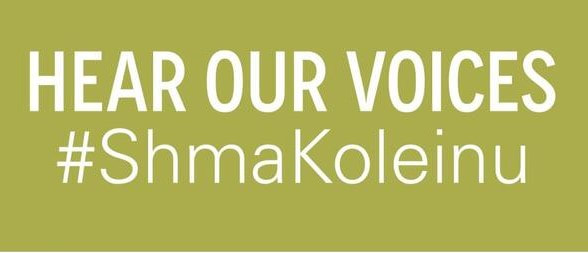
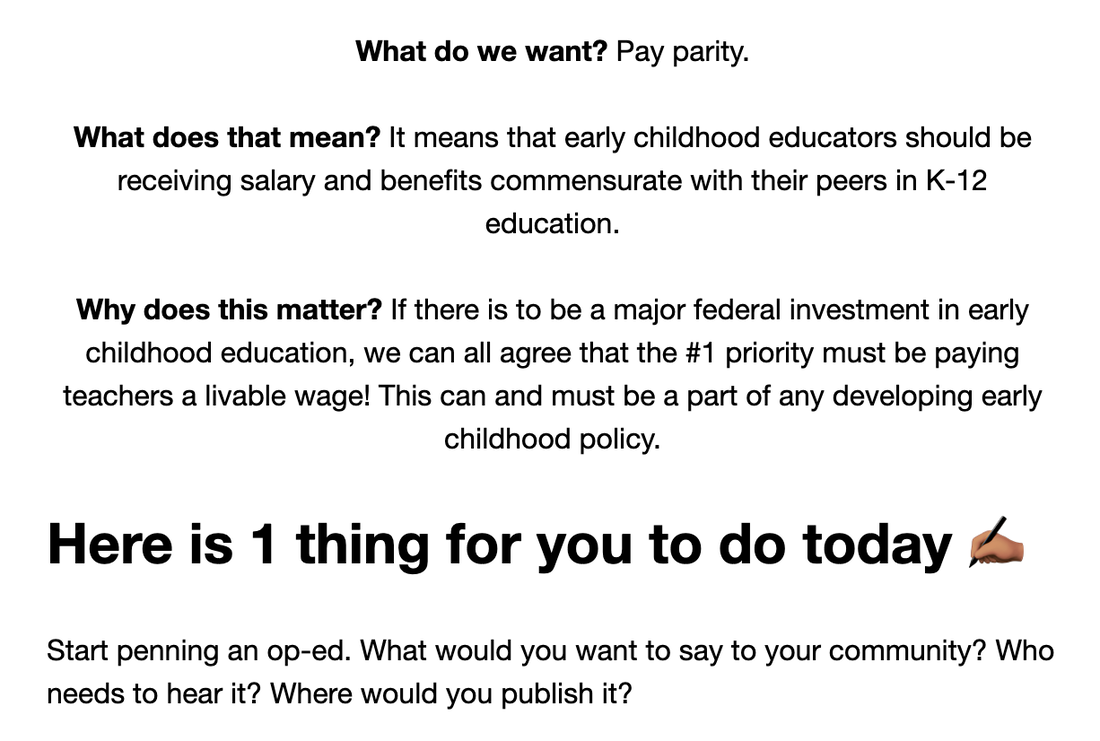
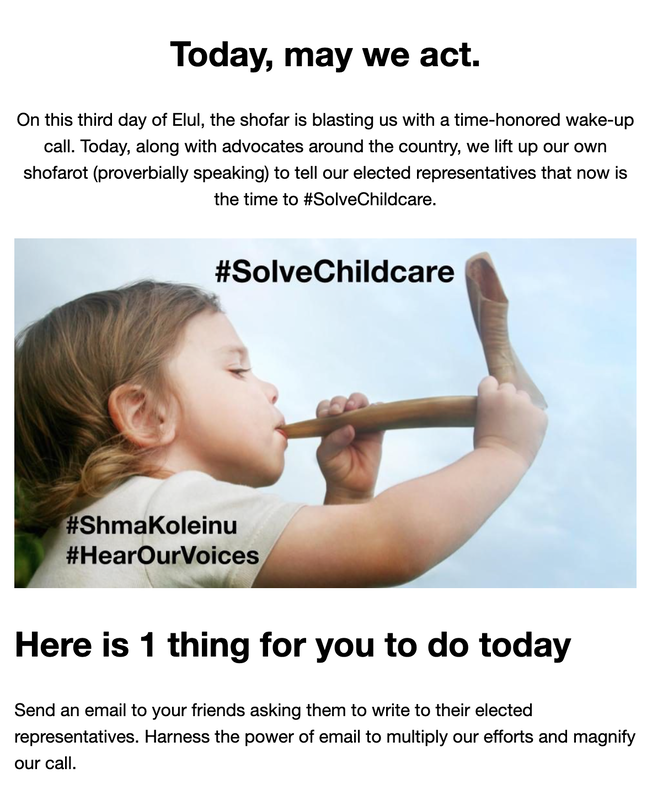
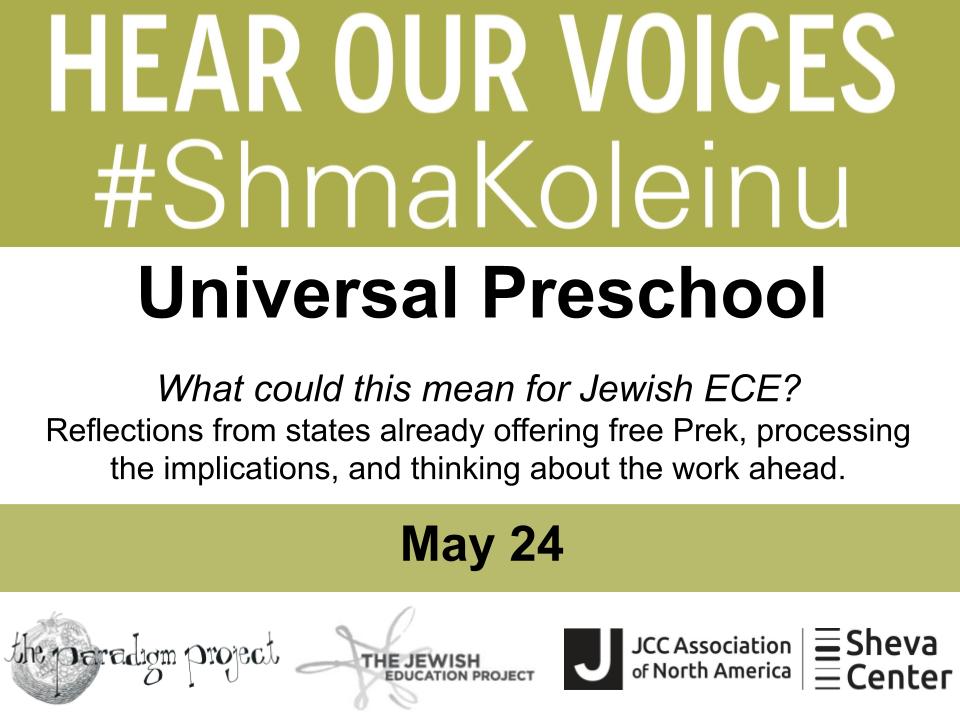
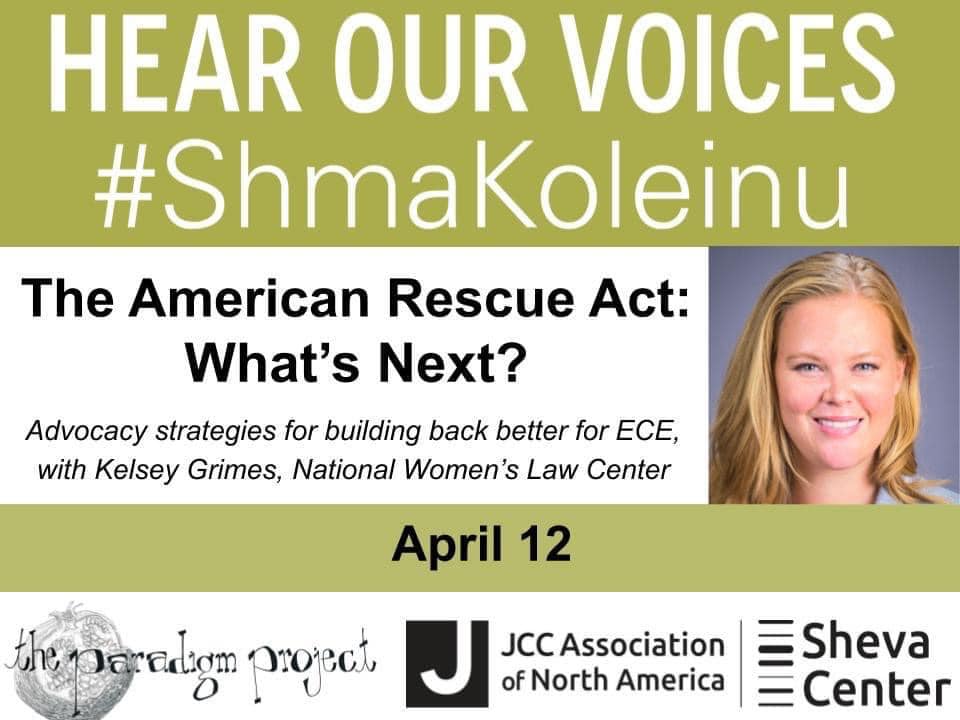
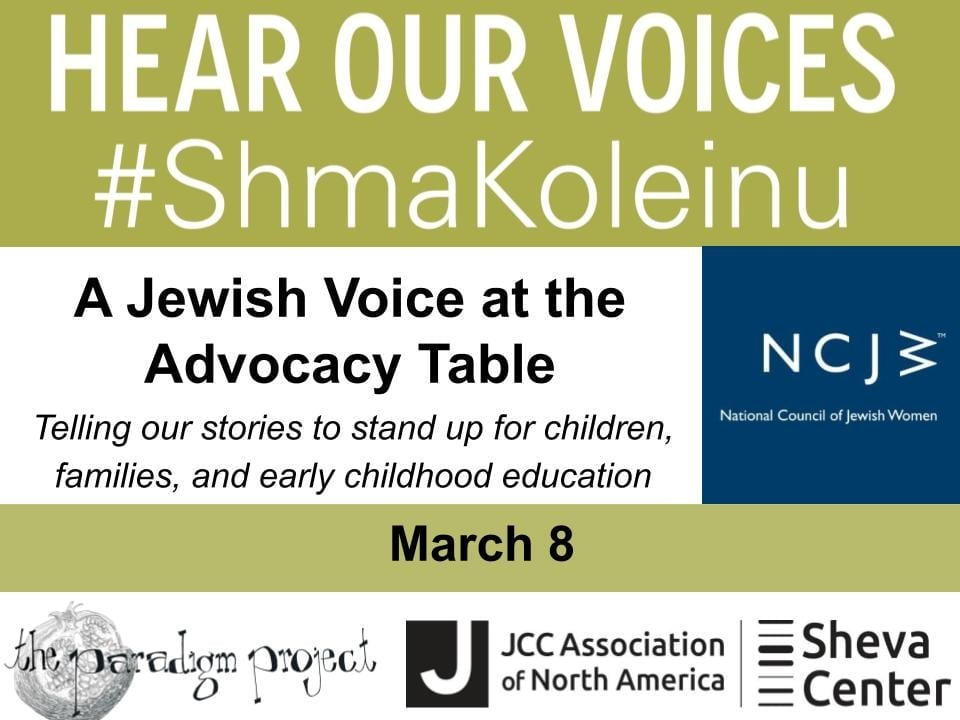
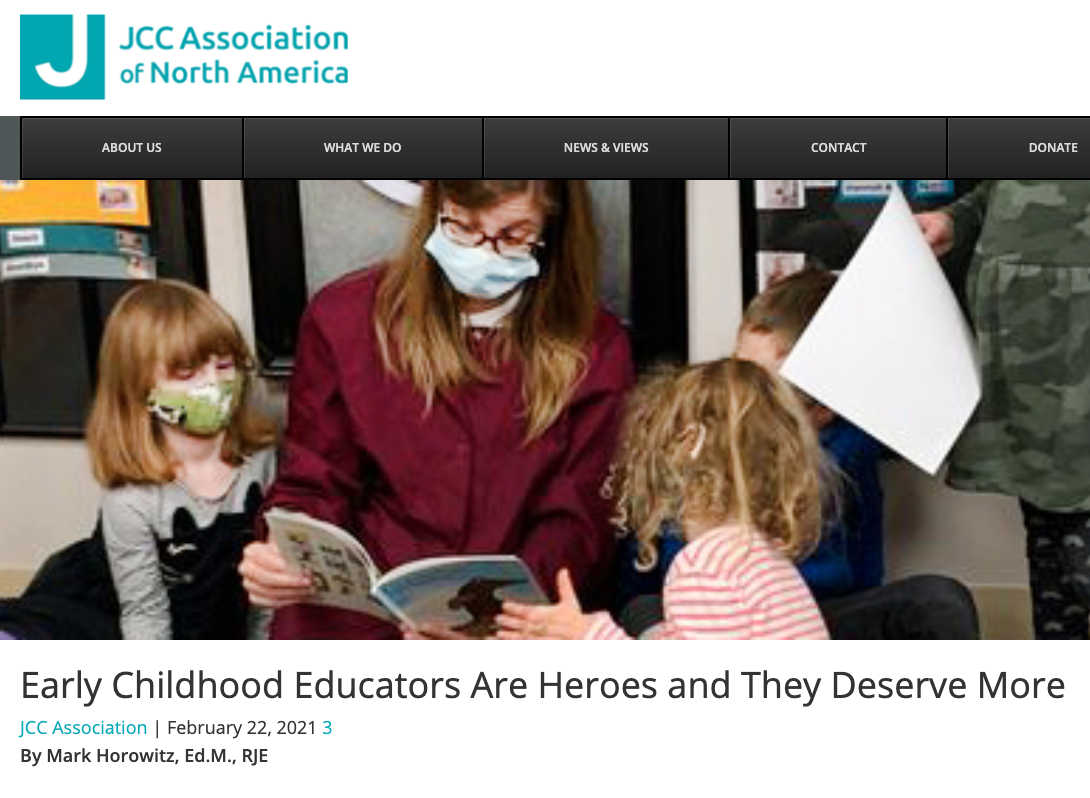
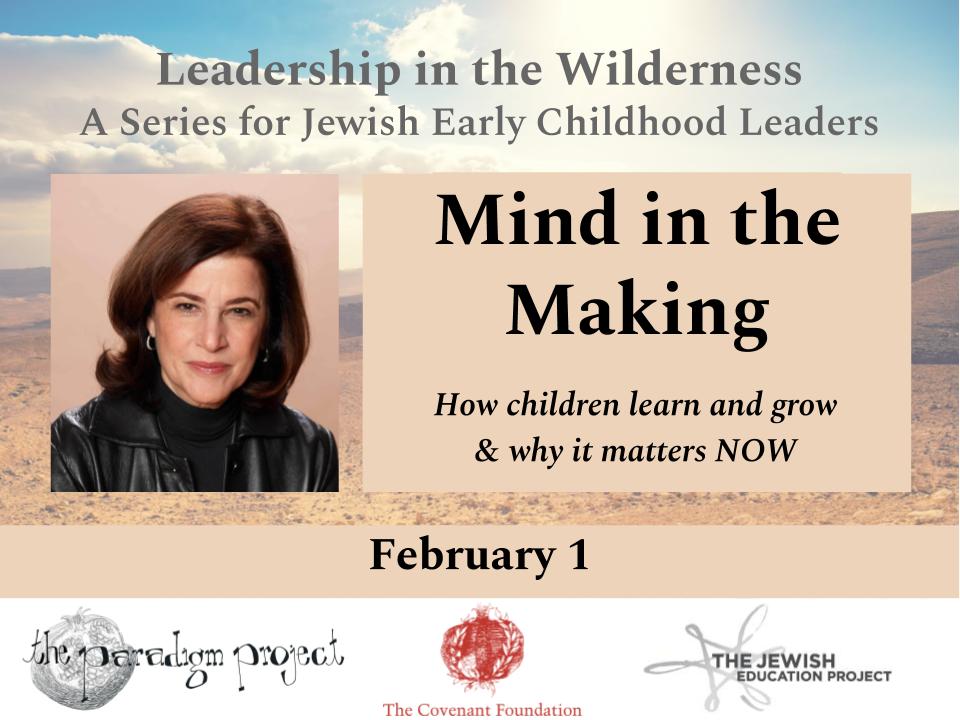
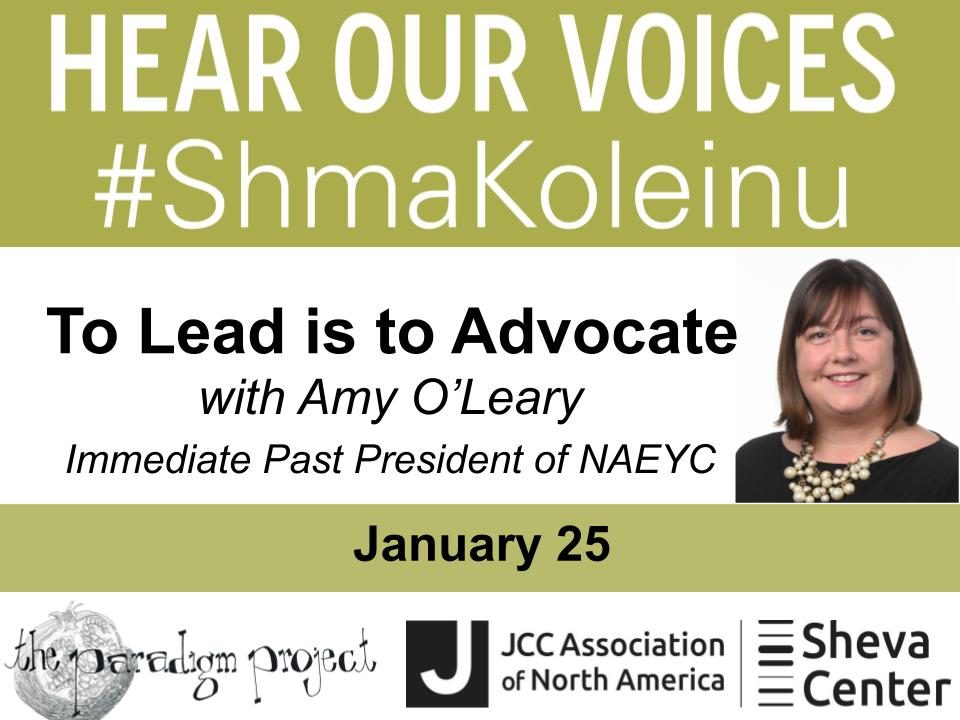
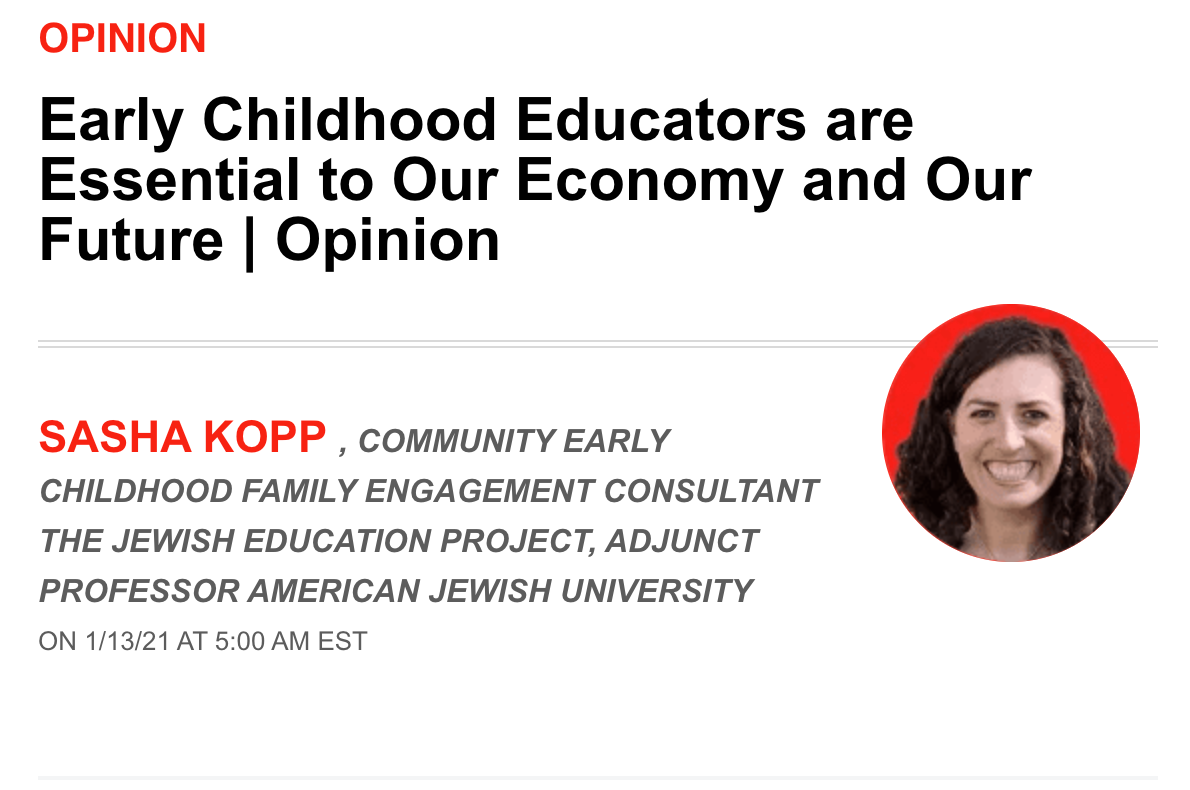
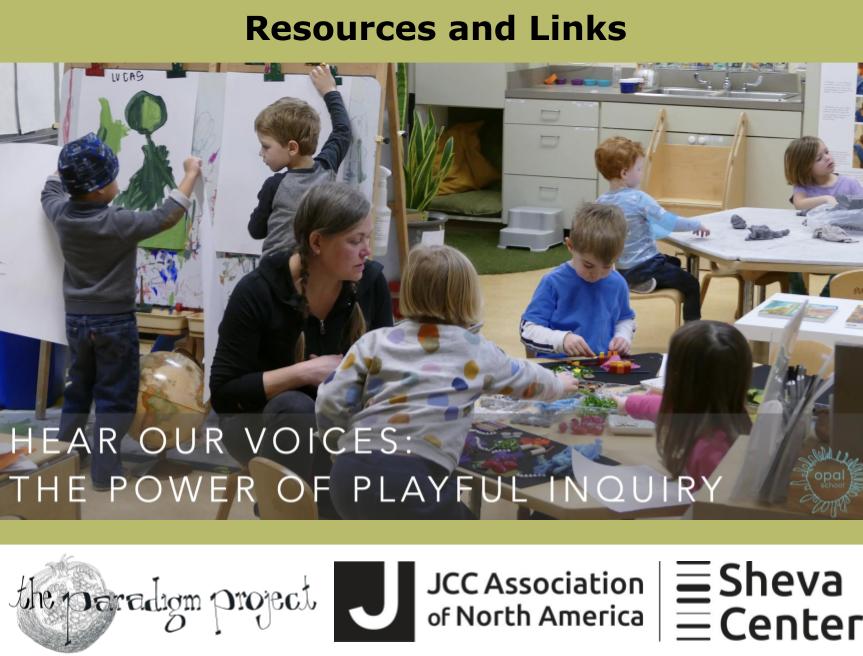
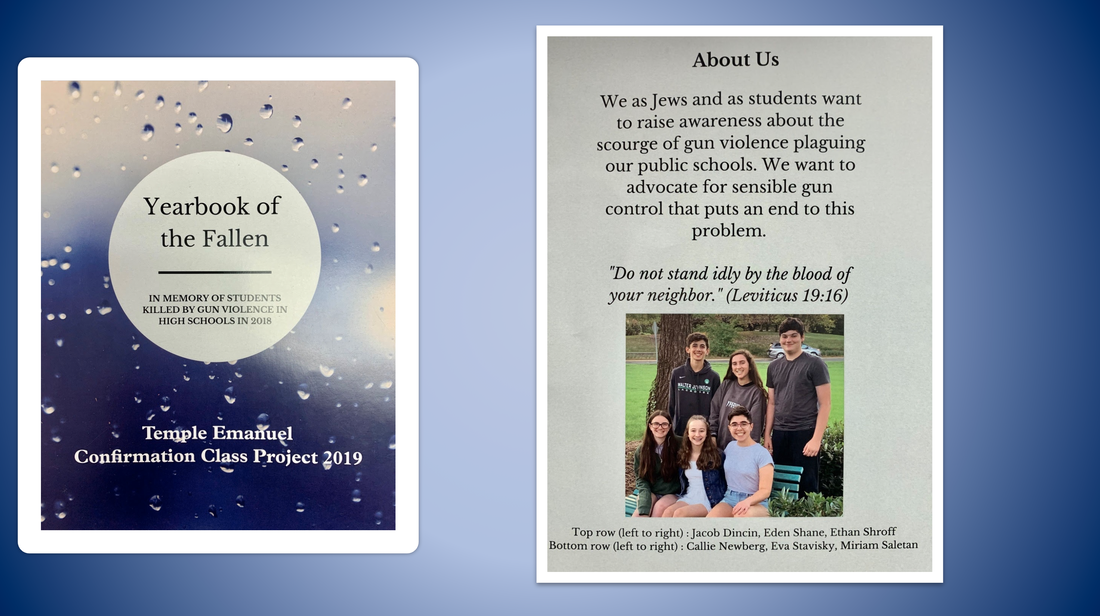
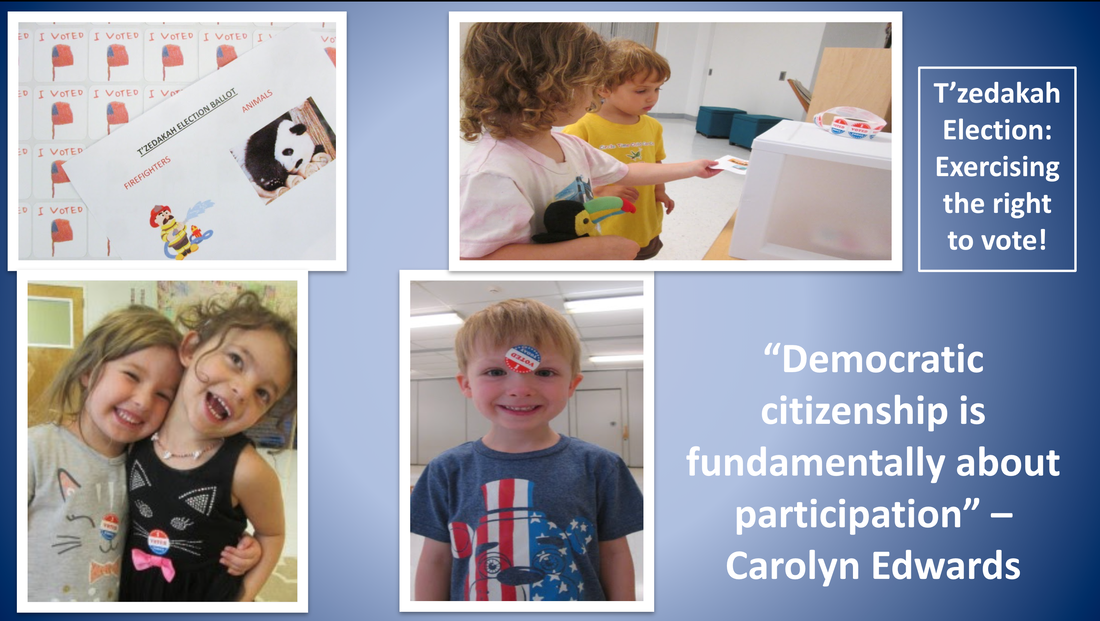
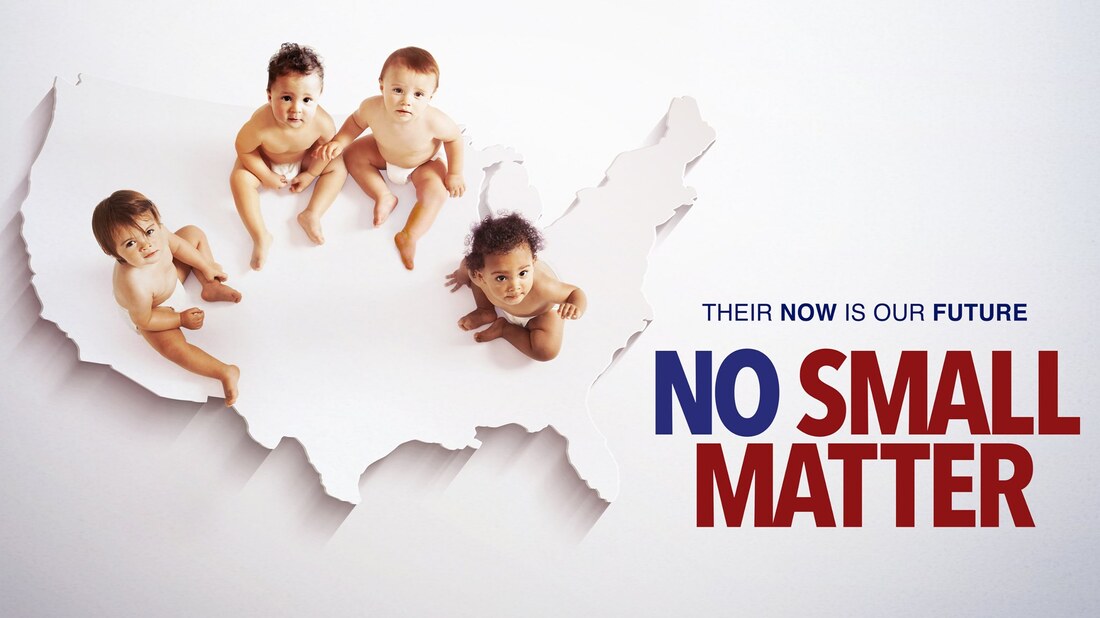
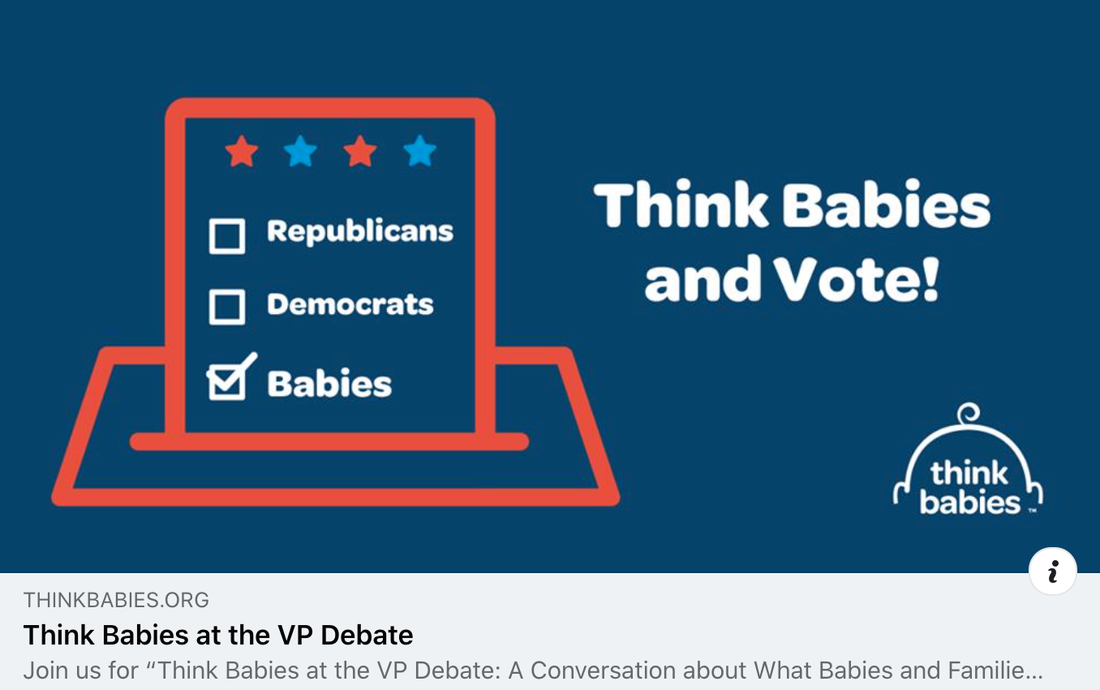
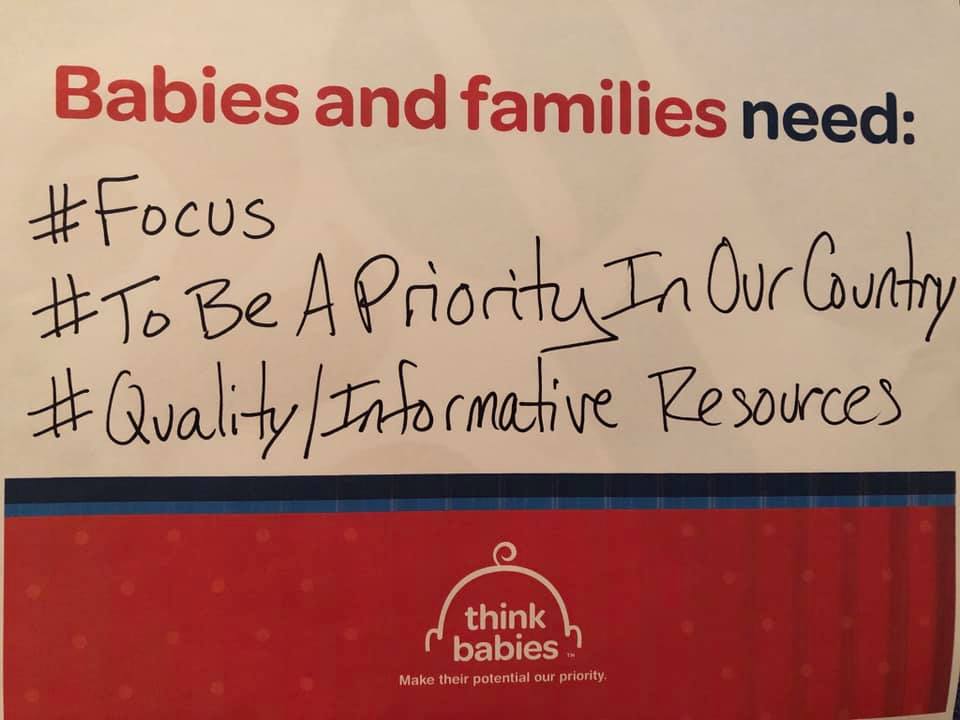
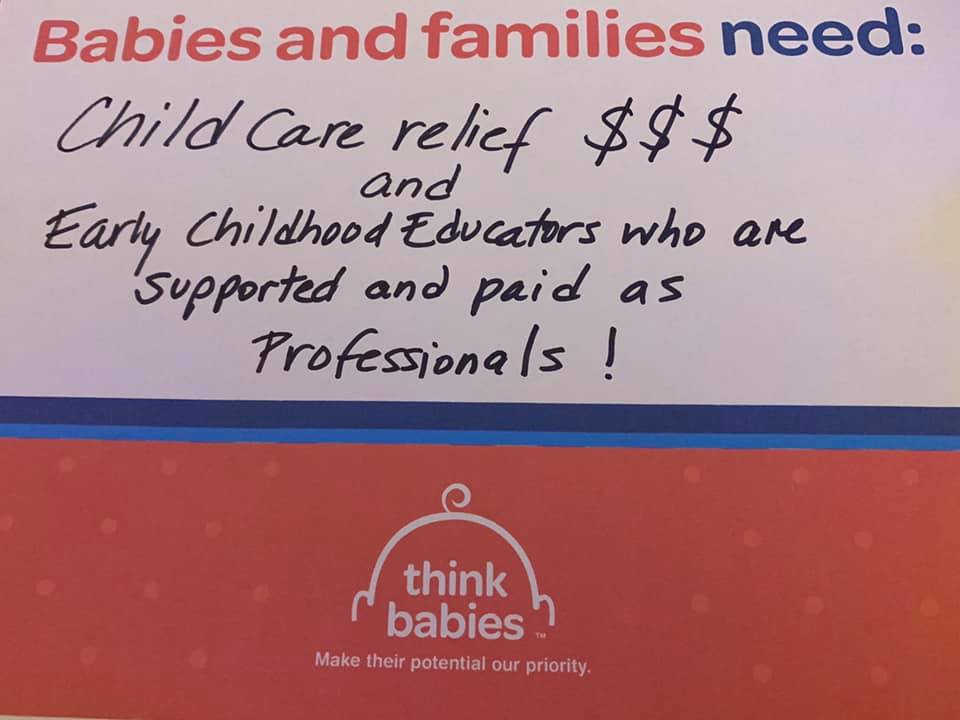
 RSS Feed
RSS Feed